The Beauty of Video Modeling: How Rasheeda Found Hope for Her Son

Rasheeda was a devoted mother of a preadolescent son, Raymond, who had autism. Despite her unwavering love and dedication, she often felt overwhelmed and helpless. Raymond struggled with everyday tasks, and one of the most challenging hurdles was potty training. Rasheeda had tried numerous methods, but nothing seemed to work. One day, while browsing online, she came across a story about the Seizure Support Foundation (SSF) and their incredible work with children who have neurological disorders. Intrigued and hopeful, Rasheeda decided to reach out to SSF for help. When Rasheeda contacted SSF, she was introduced to the concept of video modeling. SSF explained that video modeling involves using videos that demonstrate specific behaviors or skills, allowing children to learn by watching and imitating. They assured her that this method had shown promising results, especially for children with learning disabilities. Rasheeda was skeptical but willing to try anything that might help Raymond. SSF advised Rasheeda on a selection of culturally relevant videos specifically designed for potty training. They included familiar accents, settings, and models who are of Raymond’s age bracket, making it easier for him to relate to and understand the content. Along with the videos, SSF gave Rasheeda detailed instructions on how frequently Raymond should watch the videos and how to reinforce the lessons at home. Rasheeda followed the instructions diligently. Every day, she sat with Raymond and watched the videos, patiently guiding him through the steps. The videos broke down the process of using the restroom into simple, manageable steps, demonstrating each one clearly. To her surprise, Raymond showed interest and began to mimic the actions he saw on the screen. As days turned into weeks, Rasheeda noticed subtle changes in Raymond’s behavior. He was more attentive and seemed to understand what he was supposed to do. One morning, just a month after they started the video modeling program, Rasheeda witnessed a moment she had longed for. Raymond, without any prompting, walked to the restroom and used it all by himself, just like he had seen in the videos. Rasheeda’s heart swelled with pride and joy. She could hardly contain her excitement and immediately called SSF to share the incredible news. Rasheeda’s story is a testament to the beauty and effectiveness of video modeling, especially when the content is culturally appealing and relatable. Here are some of the key benefits of video modeling: Rasheeda’s experience with video modeling not only transformed her son’s life but also gave her hope and confidence in her ability to support Raymond’s growth. The success of culturally relevant video modeling programs like those provided by SSF demonstrates the powerful impact this approach can have on children with learning disabilities. If you know a child who could benefit from video modeling, or if you’re inspired to support this transformative approach, reach out to the Seizure Support Foundation today. Together, we can help more children like Raymond achieve their full potential and lead happier, more independent lives. Join us in making a difference!
The Importance of a Culturally Relevant Video Modeling Library for Children with Special Needs and Learning Disabilities
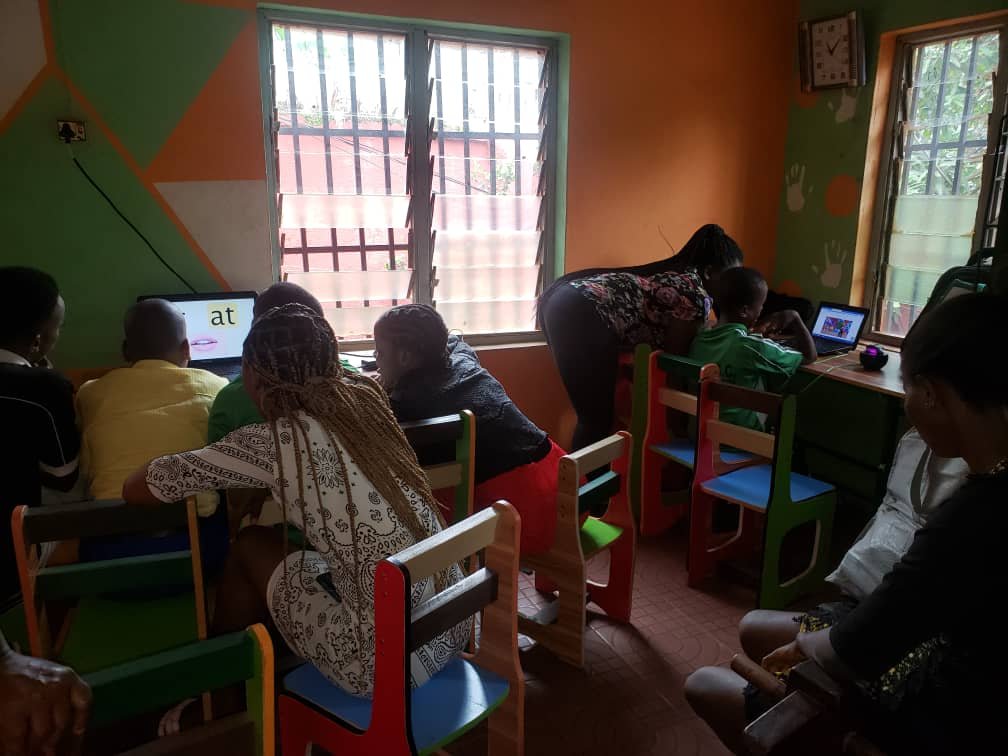
In today’s diverse educational landscape, ensuring that all children receive an inclusive and effective education is paramount. Among the many educational tools available, video modeling has emerged as a powerful method to teach children with special needs and learning disabilities essential life skills and academic content. However, the effectiveness of these tools can be significantly enhanced when they are culturally relevant. This is where a culturally relevant video modeling library can make a substantial difference. Understanding Video Modeling Video modeling is a teaching technique where children learn by watching videos of peers or adults demonstrating a task or behavior. This method leverages visual and auditory learning pathways, which are particularly beneficial for children with special needs, including those with autism, ADHD, and other learning disabilities. By breaking down tasks into manageable steps, video modeling helps children grasp complex concepts and skills that they might struggle to learn through traditional teaching methods. The Role of Cultural Relevance Cultural relevance in educational content means that the material reflects the experiences, languages, and values of the children it aims to teach. For children with special needs, culturally relevant video modeling can bridge the gap between learning and comprehension in several ways: Impact on Learning Outcomes The effectiveness of culturally relevant video modeling has been demonstrated in various studies. For example, a quasi-experimental study in Nigeria showed significant improvements in the IQ and skill acquisition of children with learning disabilities after five weeks of intervention using video modeling Seizure Disorders and Learning Disability Project 2022 However, the foreign accents and cursive writing in existing video models posed challenges. By developing a culturally relevant video modeling library, we can overcome these limitations and enhance learning outcomes. Supporting Inclusive Education A culturally relevant video modeling library not only benefits children with special needs but also promotes inclusive education. By providing accessible and relatable learning resources, it ensures that all children, regardless of their abilities, have the opportunity to learn and thrive. This approach aligns with global educational goals, such as the United Nations’ Sustainable Development Goal 4, which aims to ensure inclusive and equitable quality education for all. Conclusion The creation of a culturally relevant video modeling library is a vital step towards enhancing the educational experience for children with special needs and learning disabilities. By addressing cultural barriers and making learning more accessible and relatable, we can significantly improve educational outcomes and foster greater inclusivity. As educators, caregivers, and community members, it is our responsibility to support and implement these innovative solutions to ensure that every child has the opportunity to reach their full potential.
Seizure Support Foundation Advocacy Group Meets with Commissioner to Enhance Special Education
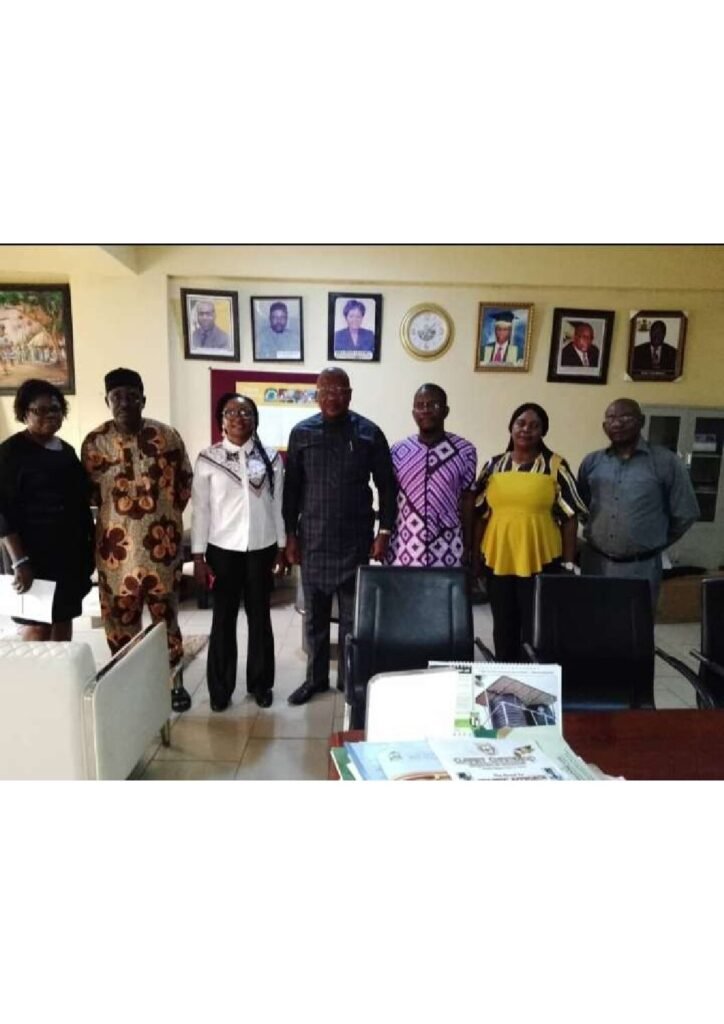
In a concerted effort to improve special education in public schools, an advocacy team met with the Honorable Commissioner for Education, Professor Uche Eze, and his directors in a two-hour marathon session. The meeting was focused on exploring potential collaborations to enhance the quality and reach of special education programs in Enugu’s public schools. During the session, the advocacy team and the education officials discussed various strategies to address the challenges faced by students with special needs. Professor Eze expressed his commitment to improving special education and welcomed the advocacy group’s input. “Collaborative efforts are essential to ensure that every child, regardless of their abilities, receives a quality education,” he stated. The discussions covered key areas such as teacher training, resource allocation, and the development of inclusive curriculums. Both parties emphasized the importance of creating an inclusive environment that supports the unique needs of all students. The advocacy team left the meeting optimistic about the potential for meaningful progress. “We are encouraged by the Commissioner’s openness and look forward to working together to bring about positive changes,” said a representative from the advocacy group. This session marks a significant step towards enhancing special education in Enugu, with both the advocacy group and the Ministry of Education committed to ongoing dialogue and collaboration. For further information, please contact: Info@seizuresupportfoundation.org
Special Education Scholarship Project 2024: A Lifeline for Families in Need
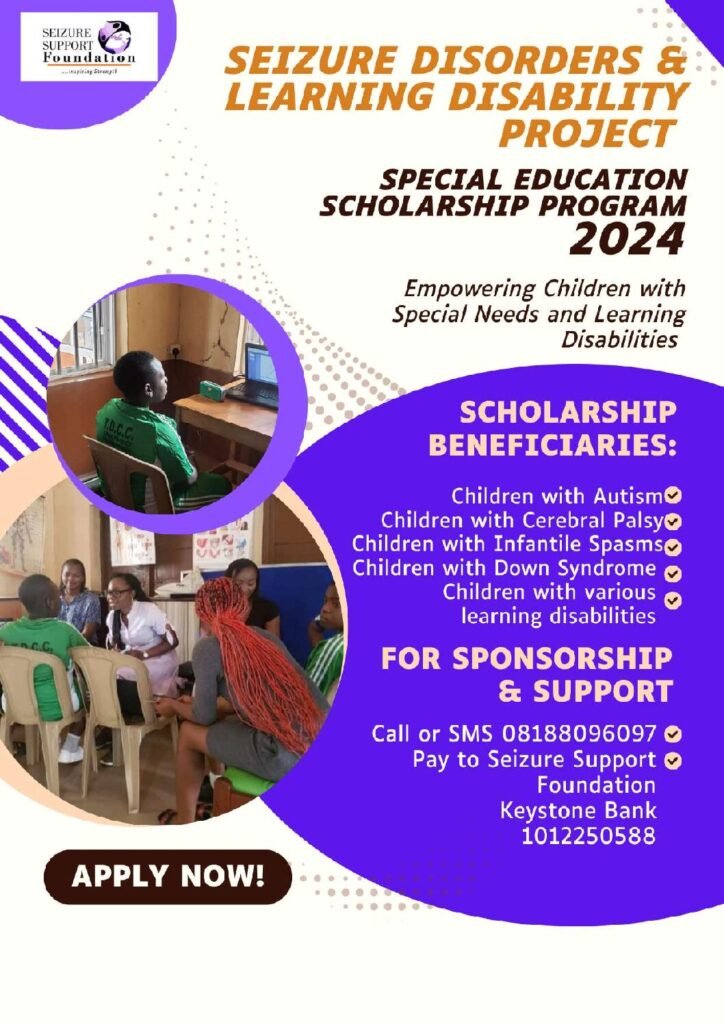
Enugu, June 2, 2024 – Imagine a household with six children, including one with special needs. This family often faces an agonizing choice: sacrificing the education of their special needs child to ensure their other children can attend school. The Special Education Scholarship Project 2024 is designed to end such dilemmas. This scholarship program aims to provide children with special needs the opportunity to receive an education, empowering them to lead productive and independent lives. By contributing to this project, supporters are not just funding education but also fostering hope and opportunity for families facing these tough decisions. Why Your Support Matters Children with special needs often require specialized educational resources, which can be financially overwhelming for many families. Without assistance, these children risk being left behind. Support from the community enables the project to: Join Us in Making a Difference Contributing to the Special Education Scholarship Project 2024 means making a significant impact on the lives of children with special needs and their families. Together, we can help these children reach their full potential and build a brighter, more inclusive future. Donate today and be part of this life-changing journey. Thank you for your unwavering support and commitment to inclusive education. For more information or to donate: info@seizuresupportfoundation.org #SpecialEducation #Scholarship #InclusiveEducation #SupportSpecialNeeds #EducationForAll
Seizure Support Foundation and Ministry of Gender Affairs Finalize Landmark PPP Agreement
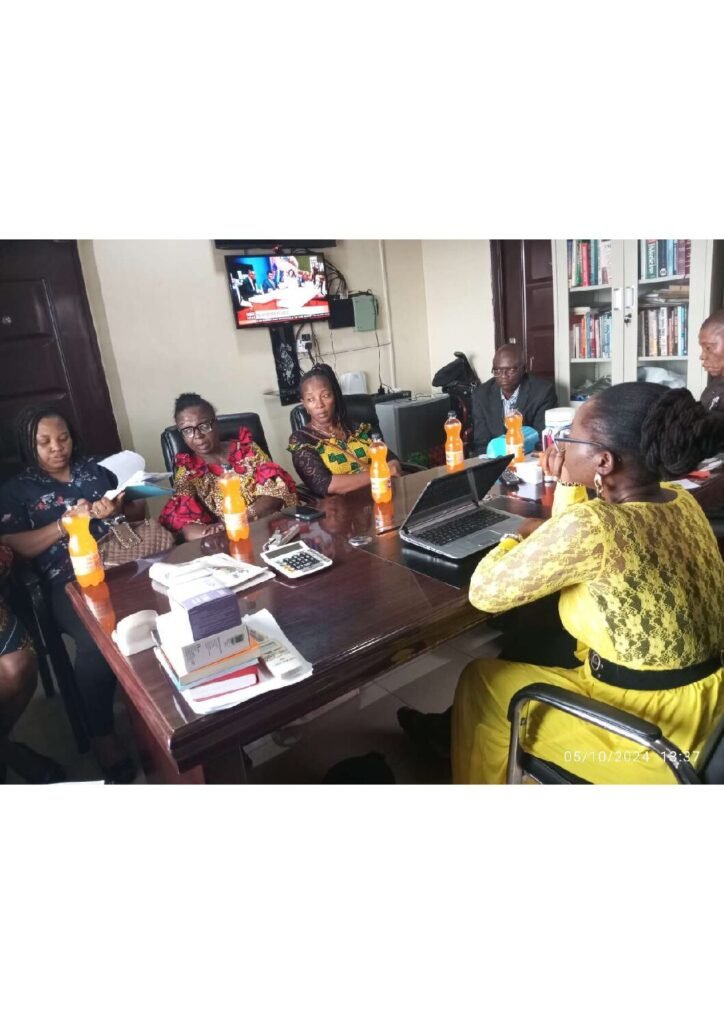
Enugu, May 10, 2024 – In a significant step forward for children with special needs, the Seizure Support Foundation and the Ministry of Gender Affairs have successfully concluded a Public-Private Partnership (PPP) agreement. This milestone agreement aims to enhance support services and inclusivity for special needs children in Enugu. Today’s meeting began with an in-depth review of the proposed agreement, focusing on defining the roles, responsibilities, and commitments of both parties. The discussions highlighted key areas including funding allocation, implementation strategies, and monitoring and evaluation mechanisms. Representatives from both the Seizure Support Foundation and the Ministry of Gender Affairs expressed their enthusiasm for this partnership. They stressed the importance of leveraging resources and expertise from both sectors to create sustainable solutions that empower children with special needs and promote inclusivity. Following constructive feedback and minor adjustments, a consensus was reached, marking a formal commitment to collaborate towards improving the lives of special needs children. The agreement sets the stage for a collaborative journey aimed at fostering innovation, raising awareness, and providing comprehensive support services. The ultimate goal is to create a more inclusive and supportive environment for children with special needs and their families. The Seizure Support Foundation and the Ministry of Gender Affairs reaffirmed their dedication to transparency, accountability, and collaboration as outlined in the PPP agreement. They believe that this partnership will make a meaningful impact and contribute to a more inclusive and compassionate society. For further information, please contact: Seizure Support Foundation: info@seizuresupportfoundation.org
Seizure Support Foundation’s SDLD Project Empowers Special Needs Students with Scholarships
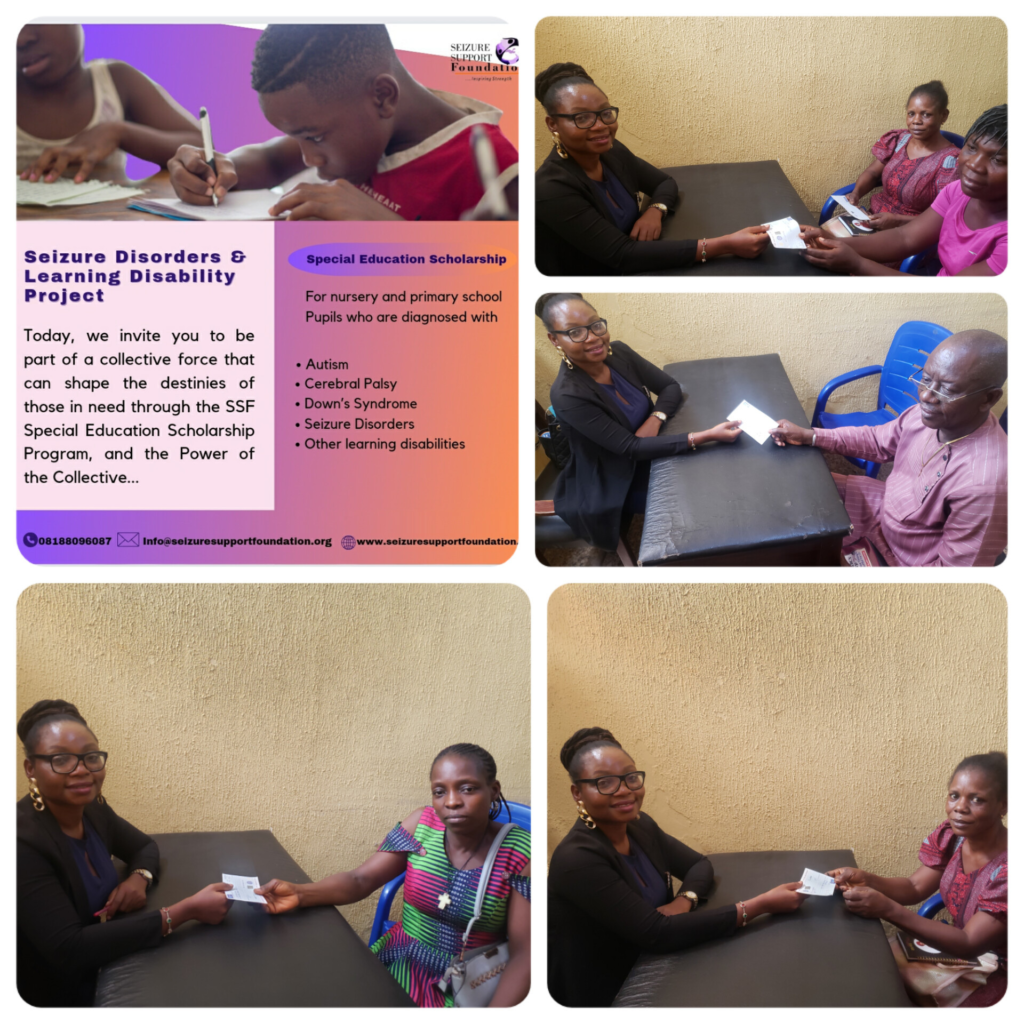
In the second term of the 2023/2024 academic session, the Seizure Support Foundation unveiled its Seizure Disorders and Learning Disability (SDLD) Project, aimed at providing specialized scholarships to children with special needs. The project, which has been running since 2021, continues to make a significant impact on the lives of 50 beneficiaries, enabling them to access education despite their challenges. The foundation’s initiative has garnered praise for its commitment to inclusivity and support for children with seizure disorders and learning disabilities. Through the SDLD Project, these students receive financial assistance tailored to their unique needs, allowing them to pursue their educational goals with confidence. Since its inception, the SDLD Project has been instrumental in breaking down barriers to education for children with special needs, fostering a sense of belonging and empowerment within the community. The foundation’s unwavering dedication to supporting these students has not only enabled them to return to school but has also instilled hope and optimism for a brighter future. For inquiries about the Seizure Support Foundation’s initiatives or to explore partnership opportunities, interested parties are encouraged to contact the foundation via email at info@seizuresupportfoundation.org.
Seizure Support Foundation Strengthens Ties with Enugu State Ministry of Gender Affairs and Social Development
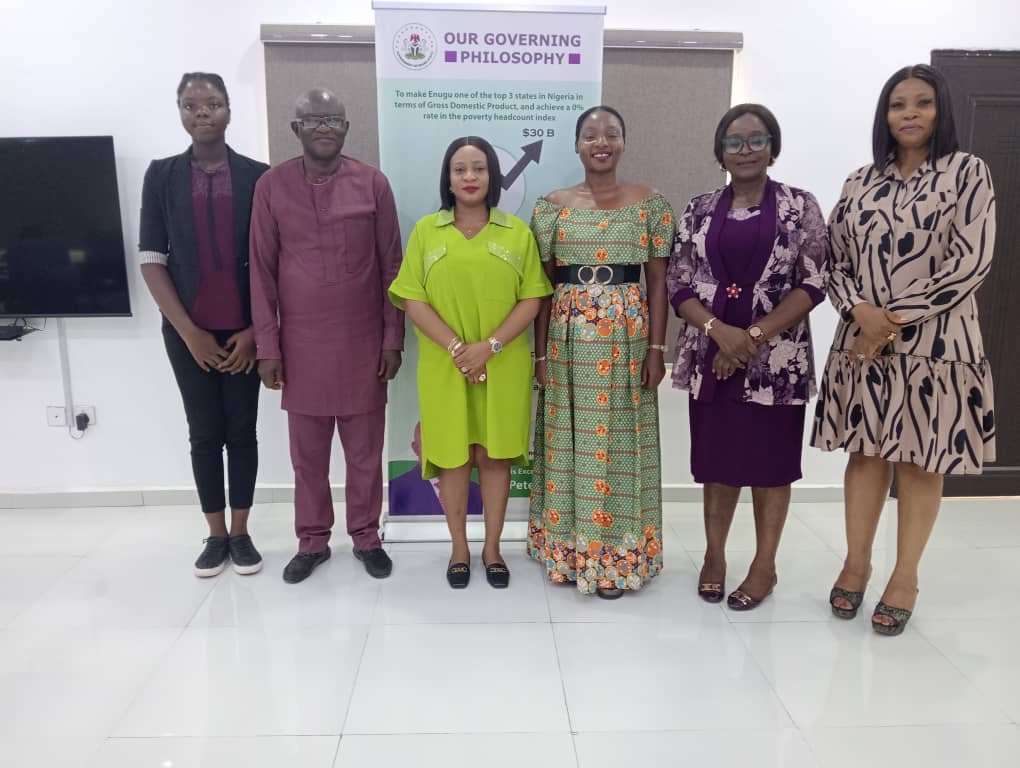
Enugu, April 18, 2023: The Seizure Support Foundation (SSF) recently embarked on a courtesy visit to the office of the Commissioner for Gender Affairs and Social Development, Mrs. Ngozi Eni, at the Enugu State Ministry of Gender Affairs and Social Development Complex in Independence Layout, Enugu. Led by Dr. Chiagorom Chiggy Nnenna, the foundation’s representatives congratulated Commissioner Eni on her commendable achievements within her tenure, highlighting the significance of public-private partnerships (PPPs) between grassroots NGOs and government agencies. Dr. Chiagorom Chiggy Nnenna emphasized the pivotal role that PPPs play in addressing the needs of vulnerable communities, particularly children and families facing disabilities. She reiterated SSF’s commitment to collaborating with the ministry to ensure that the goals and agenda of the Enugu State government are effectively delivered to the grassroots level. In response, Commissioner Eni reaffirmed the State government’s unwavering commitment to realizing its agenda through strategic partnerships with stakeholders and interest groups. She expressed the ministry’s readiness to collaborate with Seizure Support Foundation on future programs and projects aimed at supporting vulnerable children and families with disabilities. The meeting underscored the importance of fostering synergy between NGOs and government entities to address pressing social issues and deliver impactful solutions to communities in need. It highlighted the mutual dedication of both parties to work collaboratively towards enhancing the well-being and inclusivity of Enugu State’s residents. As the Seizure Support Foundation continues to champion the cause of individuals with special needs, its partnership with the Ministry of Gender Affairs and Social Development marks a significant step forward in achieving its mission of creating a more inclusive and supportive society for all. For further inquiries or partnership opportunities, please contact: info@seizuresupportfoundation.org
Tackling Educational Exclusion of Children with Special Needs in Nigeria: A Multi-Faceted Approach
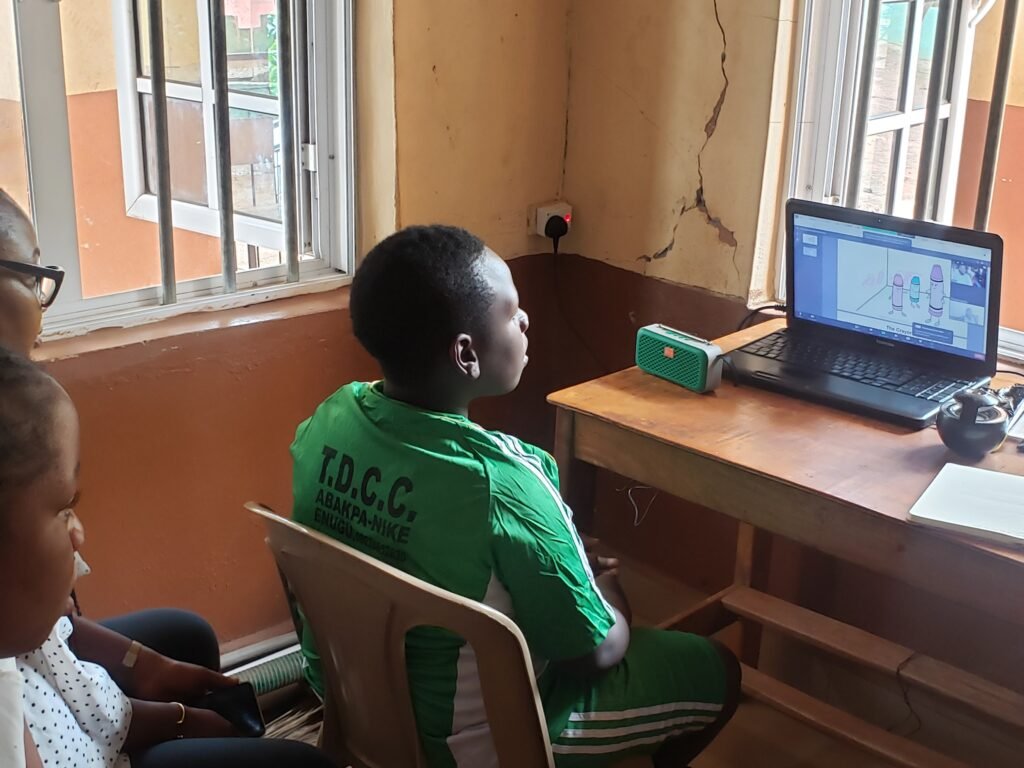
In Nigeria, the exclusion of children with special needs from the educational landscape is a pressing issue that demands urgent attention. With over 4.7 million children in Nigeria having some form of disability, it’s evident that a significant proportion of the population is affected by this issue. However, despite their numbers, these children are grossly underrepresented in the nation’s educational institutions. This article aims to delve into the root causes of this exclusion and propose a comprehensive solution to address it. Problem Analysis:Societal stigmatization, lack of inclusive schools, poverty and socioeconomic barriers, poor teacher training, and inadequate policy implementation are identified as the key factors contributing to the educational exclusion of children with special needs in Nigeria. Societal stigmatization and negative attitudes towards children with special needs stem from ignorance and lack of awareness. This leads to a culture of exclusion and stigma, perpetuating the marginalization of these children. The absence of inclusive schools exacerbates the problem, as many children with special needs do not have access to appropriate educational facilities. Poor awareness and advocacy contribute to the lack of inclusive schools, as does the scarcity of resources and funding. Poverty and socioeconomic barriers further restrict access to education for children with special needs, as many families cannot afford the associated costs of schooling. Inadequate teacher training and weak policy implementation also hinder efforts to promote inclusive education in Nigeria. The lack of specialized educators and a comprehensive training curriculum results in a dearth of support for children with special needs in the classroom. Solution Analysis:A five-pronged approach is proposed to tackle the educational exclusion of children with special needs in Nigeria. Result Chain Framework:A thorough SWOT analysis is necessary to determine strategic intervention options based on capacity and available resources. By identifying strengths, weaknesses, opportunities, and threats, effective solutions can be tailored to address the specific needs of children with special needs in Nigeria. Theory of Change:Two theories of change are proposed to address the educational exclusion of children with special needs. The first theory focuses on providing access to evidence-based interventions and scholarships, leading to increased enrollment and improved educational outcomes. The second theory emphasizes the importance of systematic educator training, which can result in better instructional quality and enhanced learning outcomes for children with special needs.Tackling the educational exclusion of children with special needs in Nigeria requires a multi-faceted approach that addresses the root causes of exclusion while promoting awareness, advocacy, and policy reform. By implementing the proposed strategies and theories of change, Nigeria can move towards a more inclusive educational landscape where every child, regardless of ability, has access to quality education.
SEIZURECARE PODCAST: New Episode Alert!

In case you missed the Live webinar, there’s good news for you! Join me, and Drs. Adaobi and Chioma, for an insightful 20-minute conversation where we’ll delve into important topics surrounding caregiving and epilepsy. We’ll cover: Understanding Caregiver Burnout: What is it and how can we recognize its signs? Unveiling Stigmatization: Exploring its root causes and strategies for combating it. Empowering Parents: Discovering ways to make the most of raising a child with epilepsy. Don’t miss out on this impactful discussion where we’ll explore how information sharing, support groups, and community engagements can transform the challenges of raising a child with epilepsy into opportunities for growth and resilience. Let’s come together to make a difference! Listen to the conversation now. #Caregiving #EpilepsyAwareness #CommunitySupport
JOIN US FOR OUR FREE WEBINAR “Self – care Strategies For Busy Women: Prioritizing Mental Wellness in Hectic Environments”

Did you know stress and mental disorders can cause physical illness? Ever encountered someone who seems physically sick even when medical tests show they’re okay? Interested in learning coping strategies for parenting a child with special needs? Seizure Support Foundation in partnership with Rotary Clubs of Enugu City Center, Enugu City Layout, Maryland Enugu presents *”Self Care Strategies for Busy Women: Prioritizing Mental Wellness in Hectic Environment.”* Time: Mar 22, 2024 05:00 PM West Central Africa Explore the link between stress and brain functions Learn signs of stress, and find the best strategies to manage it. Gain coping strategies for parents raising children with special needs. Don’t miss this chance to learn how to lead a happier, healthier life! Join Zoom Meetinghttps://us06web.zoom.us/j/89210367777?pwd=p0xQZSQiFzcZeL2GsjXoc2rbmhMMa0.1 Meeting ID: 892 1036 7777Passcode: 837833 — One tap mobile+16694449171,,89210367777#,,,,*837833# US+16699006833,,89210367777#,,,,*837833# US (San Jose) — Dial by your location• +1 669 444 9171 US• +1 669 900 6833 US (San Jose)• +1 719 359 4580 US• +1 253 205 0468 US• +1 253 215 8782 US (Tacoma)• +1 346 248 7799 US (Houston)• +1 646 931 3860 US• +1 689 278 1000 US• +1 929 205 6099 US (New York)• +1 301 715 8592 US (Washington DC)• +1 305 224 1968 US• +1 309 205 3325 US• +1 312 626 6799 US (Chicago)• +1 360 209 5623 US• +1 386 347 5053 US• +1 507 473 4847 US• +1 564 217 2000 US Meeting ID: 892 1036 7777Passcode: 837833 Find your local number: https://us06web.zoom.us/u/klIsIy34J #SelfCare #MentalWellness #Webina
